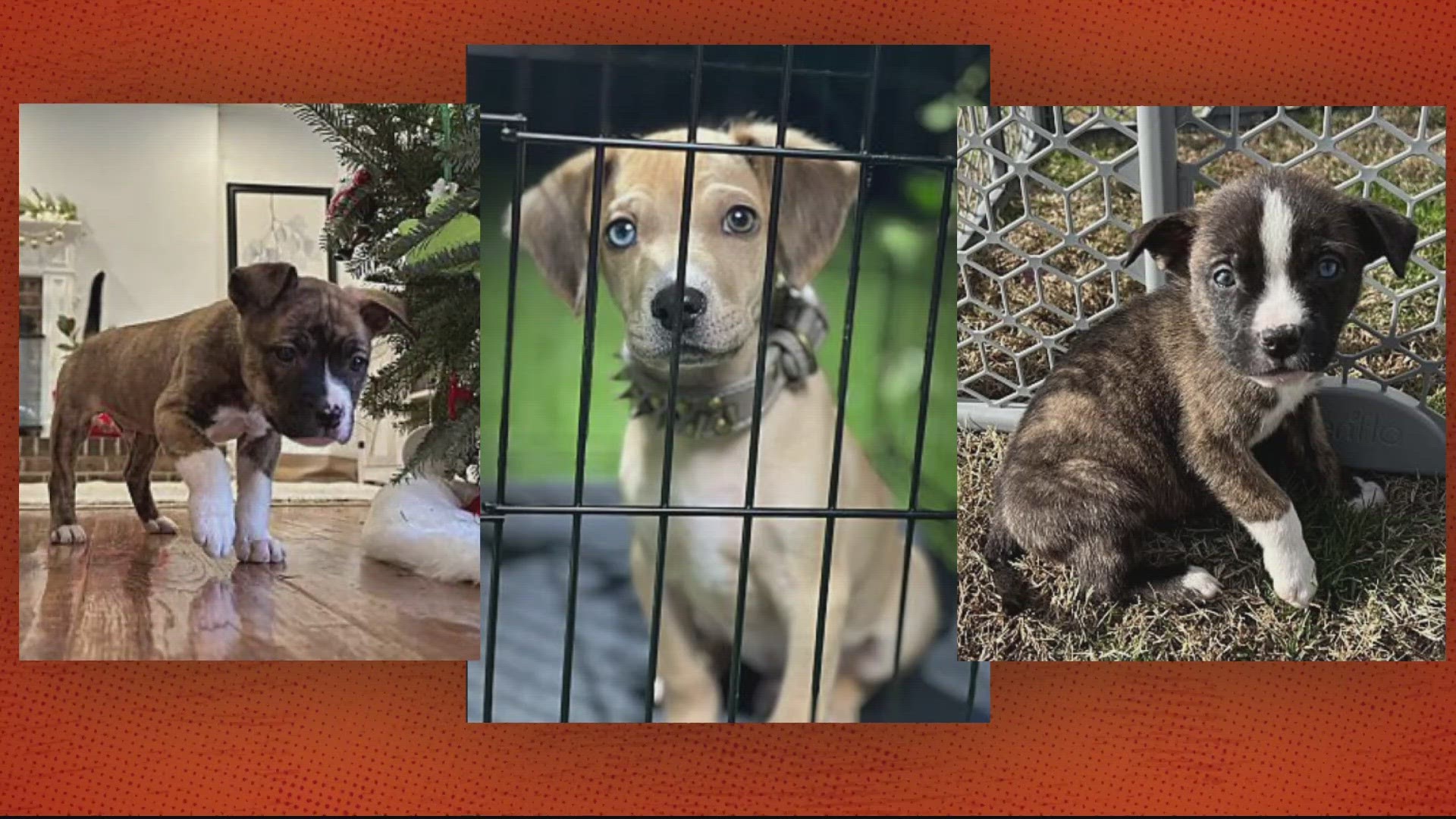WASHINGTON — Each time we have to report one of these stories of stolen dogs, we’re asking the same questions you are: Why?
In some instances, like a recent theft of a French bulldog was stolen from a home in Springfield Virginia, it’s suspected thieves steal pets with the intention of re-selling them. The American Kennel Club reports dog thefts are up about 40% from 2021.
The thief may then post an ad on a local NextDoor or Facebook page, potentially offering a desirable breed at a fraction of the cost of a breeder. The post could even detail emotional situations, like needing to move or being unable to take care of the pet any longer.
If you know the person who is giving or receiving a pet, it can be a good option in otherwise tough circumstances.
“We do support rehoming from one family to another as it greatly reduces the strain on local shelters and is often better for the pet to move from one home to another,” said Lindsay Hamrick, Director of Shelter Outreach & Engagement at the Humane Society of the US.
However, animal advocates have long urged caution in the adoption of pets in online “marketplace” settings. The Humane Society of the United States warns that many of these posts–especially those that require payment or deposits ahead of time–are a scam.
“If you buy a puppy online, it’s very likely you’re getting scammed,” said John Goodwin, senior director of the Humane Society of the United States' Stop Puppy Mills campaign, on the HSUS website. “Even if you get the puppy you ordered, it may have come from a puppy mill and they won’t show you the deplorable conditions they’re kept in. If you are buying a puppy from a breeder, make sure you meet the breeder, meet the mother dog and see where she lives.”
“I always recommend going, you know, to a rescue or a shelter to adopt,” said Brittany Athey, President of To The Rescue in Northern Virginia. “You're saving a life by rescuing. You are absolutely saving a life.”
Not only do they find homes for animals who might otherwise be on the streets, in unsafe environments, or even euthanized, licensed non-profit rescue groups ask a lot of questions and create intentional barriers to make sure they’re sending pets to good homes.
“If a shelter or a rescue is full and you have to try to rehome on your own, always ask for an adoption fee. That's going to really kind of ward off people out there looking to resell or use the animals in a not so great way,” she said. “If someone is going to purchase an animal, I would ask tons of questions like, where did this animal come from? What vetting does it have? So you know you're getting a healthy animal and you're mitigating it potentially being a stolen animal.”
The Humane Society also encourages people to use either the Adopt A Pet Rehome site or Home to Home as a way to more safely promote they’re seeking to rehome.
To protect your pet in case it’s lost or stolen: a microchip is a bit of technology about the size of a grain of rice that a pet won’t even feel under their skin, but it contains owner contact information that a vet or shelter can scan to see if a pet gets lost.
“Definitely keep your microchip up to date. If you move and update that information just so if you lose an animal or your animals stolen, you know, that will be able to find him,” said Athey. “Another thing that I actually did with my personal dog is I put a Air Tag on his collar. Microchipping is one thing, but microchipping is not a tracker. An Airtag is so definitely a recommendation as well.”
And if you’re thinking of bringing home a pet for the holidays — or any time of year — the Humane Society of the United States offers this advice:
- Do your research on the time, energy, and financial requirements of any type of animal you’re considering
- Explore all the options, from local shelters to rescue groups, which can even be breed-specific if you have something you know you want.
- Look locally, as national websites and aggregators might not include every adoptable pet in your area
- Remember, when you opt to adopt, not shop, you’re providing a home to an animal in need while helping advocacy organizations, and without perpetuating the cycle of pet overpopulation or supporting irresponsible breeding practices.

